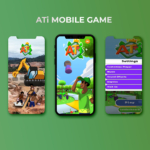
A young Ghanaian innovator, Amanda Kporwofa, has developed Ghana’s first deforestation board and mobile games, ATi, to tackle land degradation and illegal mining through interactive education.
The game addresses alarming rates of forest loss caused by galamsey, charcoal production, excessive logging, and unsustainable farming by making sustainability education engaging and memorable. It helps people become aware of the consequences of these practices and inspires them to change their behaviours.
The United Nations emphasises that education is essential for protecting forests and natural resources.
In Ghana, however, low levels of environmental awareness continue to drive rapid deforestation and illegal mining. ATi offers an innovative response by making culture a central tool for learning.
With unique cultural features; incorporating local names, references to forests and communities, and a currency modelled after Ghana’s pesewa, the game translates sustainability education into everyday cultural experiences. In doing so, it empowers people in Ghana and across Africa to understand environmental issues and take meaningful action.
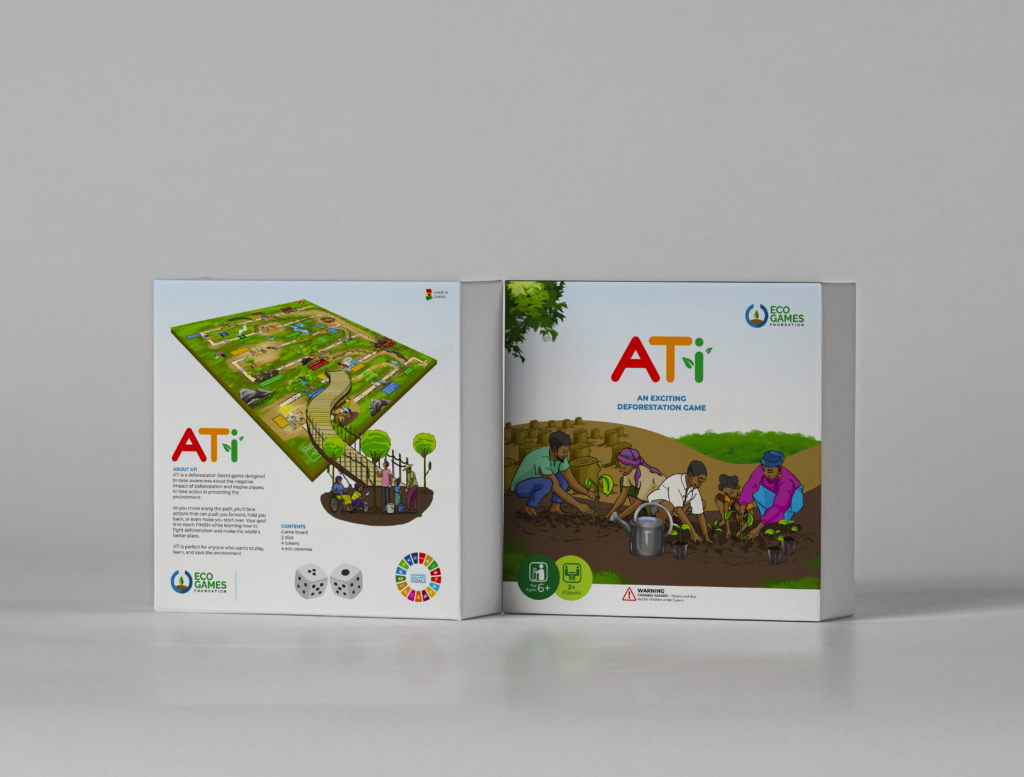
Introducing the games, she explained:
“We used local Ghanaian names like Atta, Asibi, Aidoo, Nana, and Dzifa in both games so that our target audience can see themselves and their lived experiences reflected in the gameplay. This approach makes the game more personal and culturally relevant, showing respect for people’s traditions while directly connecting to the environmental challenges their communities face.”
Two Versions, One Mission
ATi represents Ghana’s first game to bring environmental sustainability education into both physical and digital mainstream platforms, making environmental issues more accessible than ever before.
Ms Kporwofa, a PhD student of Communication at the University of Cincinnati — where her research focuses on gaming, environmental communication, and technology created the board game in 2024 as a practical tool to teach people about the harmful activities that destroy forests and water bodies, as well as the actions that protect them.
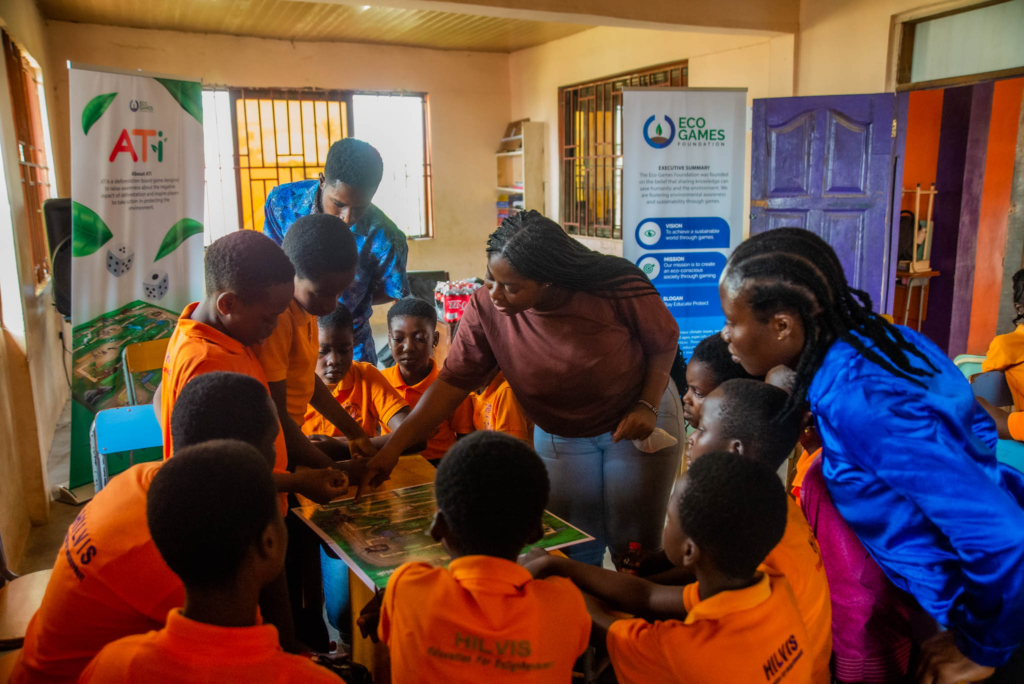
It is currently being introduced in schools and communities across Ghana, with the long-term goal of reaching every educational, government, and corporate institution in the country.
Building on this foundation, she later designed a mobile version to provide wider access and a more immersive learning experience. While the board game creates direct engagement in classrooms and community spaces, the mobile format ensures that sustainability education can be accessed anywhere and at any time.
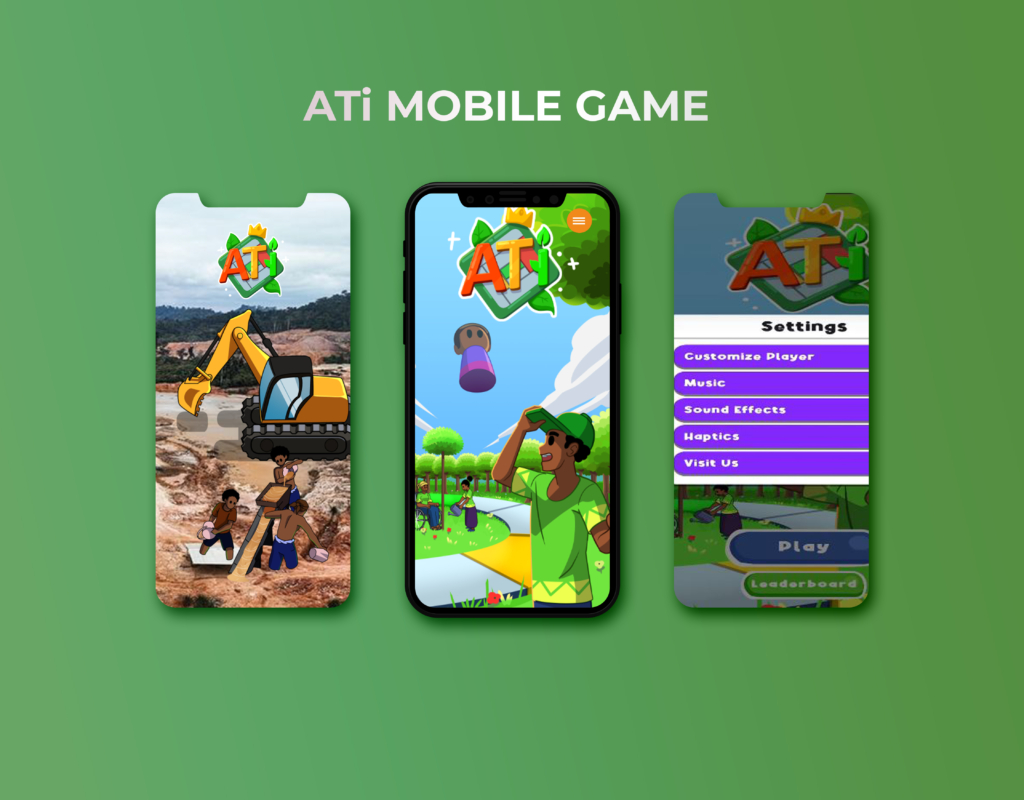
Explaining this evolution, she noted:
“We started with the board game to create immediate, tangible awareness in communities. As we visited schools, students began asking if they could access the game on their phones, saying that they wanted to download it on their parents’ devices so they could play with family and friends. We heard the same requests in the communities we engaged. That was when we realised the need for a mobile version, one that would allow people to access the game anytime, anywhere, and keep sustainability education always within reach.”
How ATi Games Work
In both versions, ATi uses a simple but effective mechanic: players navigate spaces that represent either destructive or sustainable practices. Red spaces symbolise harmful actions such as illegal mining, illegal logging, charcoal burning, and unsustainable cocoa farming, causing players to lose progress. Green spaces reward sustainable practices such as tree planting, afforestation, and clean cooking, allowing advancement. This direct link between choices and consequences helps players understand the real-world impact of environmental decisions.

The mobile game also features artificial intelligence that enables players to compete against AI opponents, as well as a global leaderboard that connects users worldwide.
From Classroom to National Initiative
What began as a class project has since evolved into a transformative national initiative. According to her, the game was first developed for a school assignment, but after recognising its potential to address deforestation and illegal mining on a larger scale, she established a non-profit organisation, Eco Games Foundation, to expand the project nationally and position it for global impact.
Designed for ages six and above, ATi makes environmental education accessible to both children and adults. The former Ghana Institute of Journalism student explained that her inspiration came from personal experiences with the devastating effects of deforestation and galamsey.
She recalled extreme heat, air pollution, land degradation, and river pollution caused by illegal mining as turning points that motivated her to develop this educational tool.
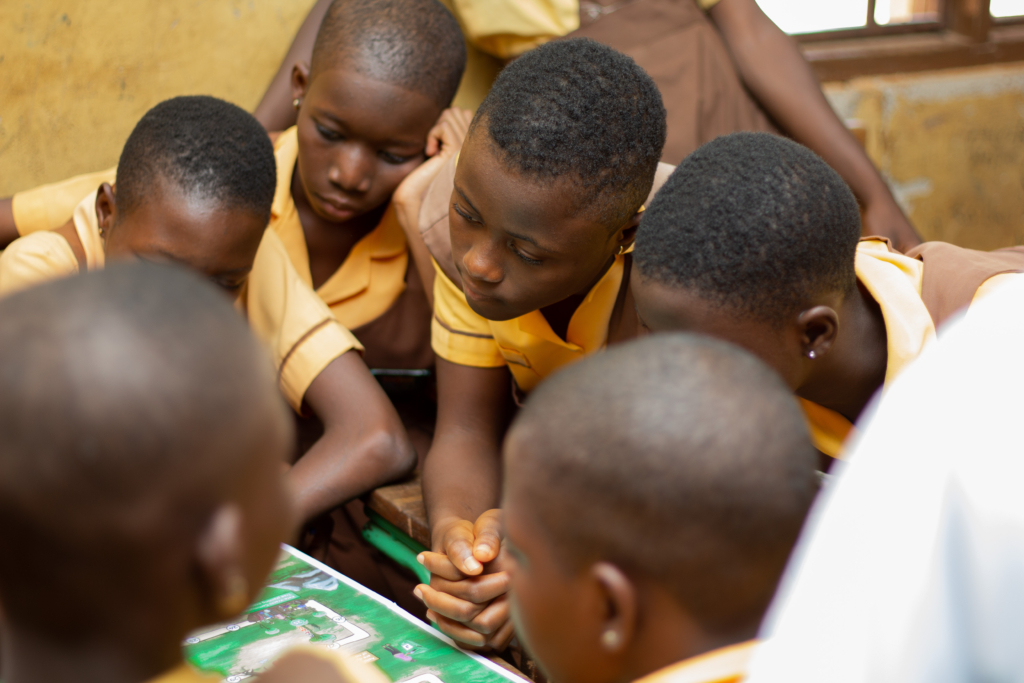
The Eco Games Foundation is set to launch both the board and mobile versions of ATi in Ghana this November. The mobile version will be available for download on the Play Store by the end of the year, following its official launch. Together with the board game, it marks a major step toward making sustainability education accessible to every classroom, household, and community in Ghana — and eventually across Africa and beyond.
Interesting Facts About ATi Games
UN Sustainable Development Goals Alignment: The game’s content and structure are built around six interrelated SDGs, including SDG 3 (Good Health and Well-being), SDG 4 (Quality Education), SDG 13 (Climate Action), SDG 14 (Life Below Water), SDG 15 (Life on Land), and SDG 17 (Partnerships for the Goals). Through its interactive design, ATi educates players on pressing issues such as air pollution, extreme heat, and clean cooking, while promoting green practices like tree planting, reforestation, and sustainable land use.
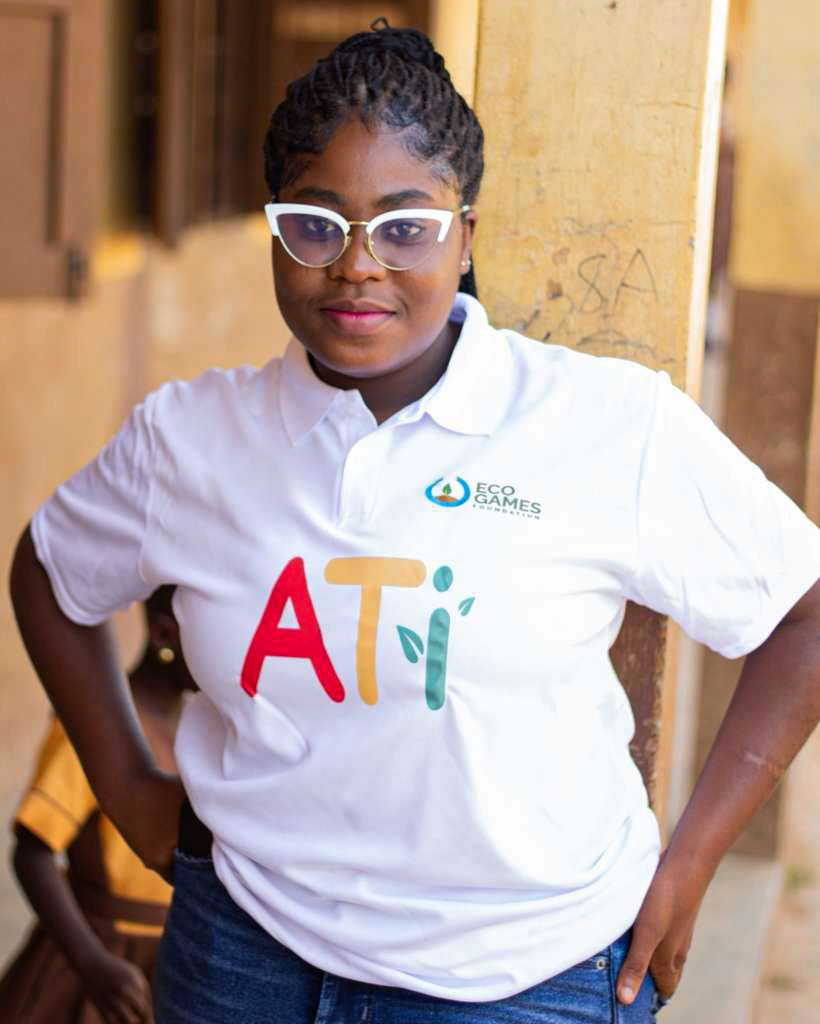
Cultural Integration with Economic Benefits: The character Atta, a common name across most ethnic groups in Ghana, plants shea nut trees in one of the green spaces. This promotes a sustainable environment while highlighting the shea tree’s vital economic role for communities that process its nuts for income. This clever design encourages players to engage in activities that are environmentally friendly and economically rewarding.
Government Initiative Alignment: The game supports the Government of Ghana’s annual national tree planting initiatives, the fight against galamsey, and the Blue Water Guard initiative for a greener environment. This alignment ensures ATi complements existing national environmental efforts.
Amanda currently serves as a lab assistant in the Games Lab at the University of Cincinnati, assisting with game design and research. She holds a Master’s degree in Communication from the University of Louisiana at Lafayette.